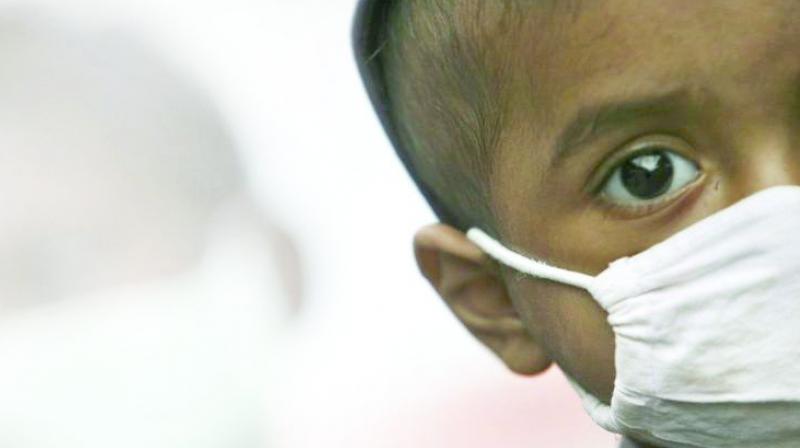Child cancer on the rise in Telangana
Paediatric cancer is a growing concern as more than 45,000 cases are reported in India every year with Telangana accounting for 5 per cent.

Hyderabad: Paediatric cancer is a growing concern as more than 45,000 cases are reported in India every year with Telangana accounting for 5 per cent.
Only 2 per cent of this cancer is genetic. Changes in environment, exposure to insecticides and hazardous materials and pollution are some of the causes for this. The most common cancer is acute leukemia or blood cancer. Lymphomas, retinoblastoma or eye tumour, neuroblastomas or brain tumour, bone tumour, muscle tumour, soft tissue tumour, Wilm’s tumour and hepatoblastoma or liver tumour are common in India.
Children hit with these tumours are less than 15 years of age and most of them are from lower and middle class families. Dr Sirisha Rani, a senior consultant paediatric heamtology oncologist at Rainbow Hospitals, said, “The national cancer registry data has shown an increase in cancer. There is still a segment which is not diagnosed and that means the figures will go up. It is important that parents don’t shy away from treatment as there is 85 per cent chance of survival in children. If the treatment is followed and there is no deviation, children respond to treatment much better than adults.”
Symptoms of cancer depend on the type of cancer but it is important not to ignore re-occurrence of fever, bone pains or joint pains, bleeding and bumpy or enlarged organ in the body. In case of children, too much of fatigue, must not be ignored.
Dr K. Pratap, a paediatric oncologist, added, “There is a lot of psychological trauma that the family suffers and it becomes extremely important to manage them along with the child. Children are found to respond in a more positive manner but if they are constantly told that they are ill and must not do this and that then it becomes a major problem.”
With modern chemotherapy protocols, supportive care, nutrition and pain management, the outcomes in India have seen 85 to 90 per cent results in long-term survival if identified in the early stages.

